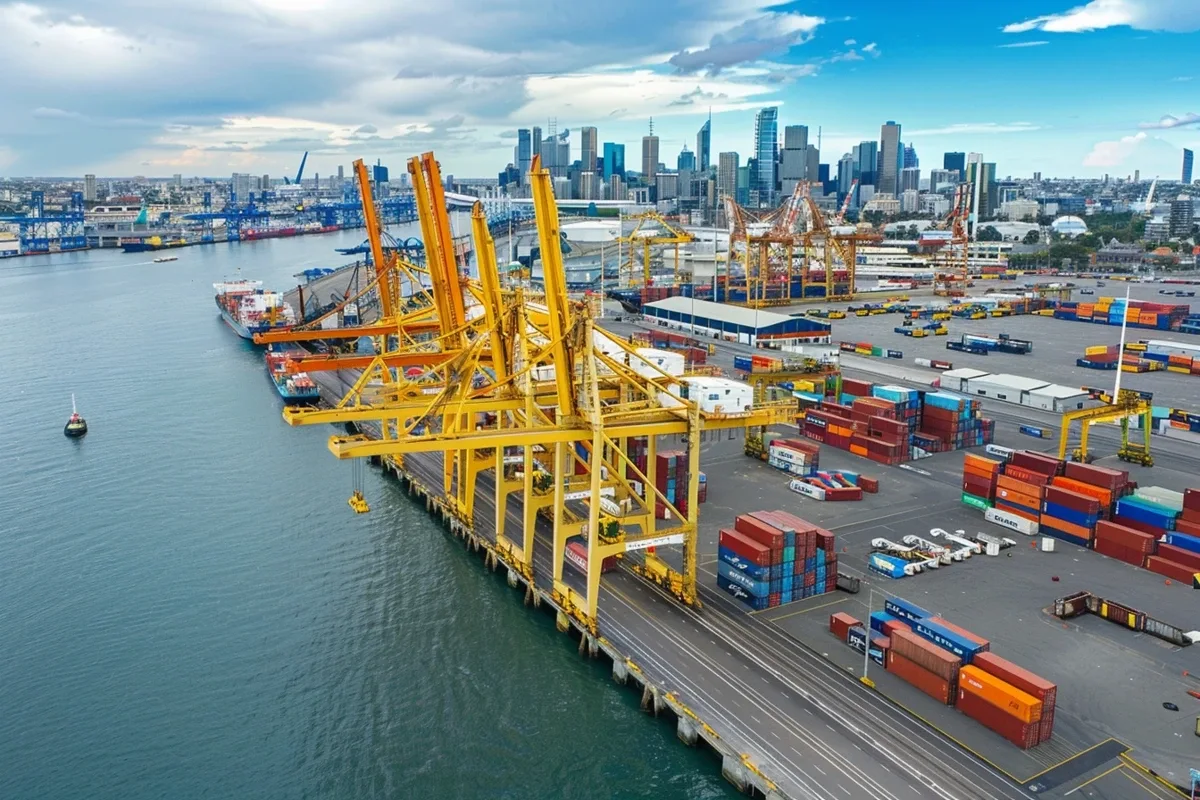
17-03-2025
7 Port Functions for the Economy and Trading, Must Note!
Ports and docks are crucial for trade and the economy because they connect important spots in global logistics. This is where the loading-unloading cargo and disembarking passengers occur.
Aside from unloading goods, you should know various port functions, such as the gate to international trade and storage facilities. To learn more about the port functions, read the information below.
An Overview of Ports

A port is a structure that serves as a place for ships to stay while they arrive for various reasons, including loading and unloading cargo, stopping to continue their journey, and so on.
In general, ports are divided into two: general and specialized. General ports are made for the public community, while specialized ports are made for particular reasons.
According to the Ministry of Transportation, in 2020, Indonesia had 2,439 ports, increasing by 38.6% compared to the previous year.
Not only that but sea transportation facilities utilizing ports in Indonesia are also increasing. In 2020, as many as 93,737 sea transportation units used ports.
From the data, it can be concluded that ports are one of the important infrastructures, especially for trade, vacation, and business relations facilities.
Read also: What Is Clean Energy? Benefits, Types, and Examples
Port Functions

Ports are built to fulfill various purposes, from trading to transporting passengers. Furthermore, here are some other port functions:
1. Logistics Distribution Spots
The first port function is becoming logistics distribution spots from one place to another place. The unloaded goods will be distributed to the factory or other destinations through transportation modes, such as trucks and freight trains.
2. Area Gateway
Ports are one of the gateways to enter a country, city, or other area. When ships arrive at the port, they may bring passengers or goods from other areas, making the port the point of entry for these people and goods.
3. International Commerce and Trade
The port function is becoming the center of international commerce and trade because it connects various transportation routes. In the port, merchants, businessmen, and suppliers come to market their products to other areas and expand their business.
4. Unloading Goods Spot
The main function of ports is to be the center of loading and unloading goods from the ships to the lands and vice versa. The goods loaded can be raw materials, export and import commodities, livestock, and many more.
Some ports also receive special goods, such as coals, chemicals, and so on. Thus, the ports usually have special employers and facilities. Moreover, some ports have cranes to carry cargo.
5. Ideal Spot for Various Industrial Activities
Many industries build factories and headquarters near the ports to save transportation costs. This is important for businesses doing raw materials export and import through the sea.
Building factories and headquarters near the ports also connects operational places with the raw materials, making the production cycle more efficient.
6. Storage Facilities
Port functions not only for unloading goods but also for storing them. In some conditions, like unloading massive numbers of goods, they may need to be stored in the port for some time before being distributed. The port also has various storage, such as for cargo, bulk, fish, and special goods
7. Consumer Chains
The next port function is becoming the product distribution chain until reaching consumers. After undergoing a long manufacturing process, the products will be loaded onto the ships and channeled to the consumers.
Read also: Synthetic Materials: Characteristics, Types, and Examples
The Advantages of Ports

Ports also have several advantages, especially for the economy and trade. Here are some benefits of ports you should know:
1. Creating Job Openings
The benefit of ports is creating job opportunities. Ports are not small buildings operated by one man. To run the port, employees with certain talents are needed, including stevedores, administrative personnel, and operators of heavy machinery. Freelancers are also welcome to work at the port as extra staff if necessary.
2. Exporting and Importing
Exporting and importing goods are important to add to a country's income and expand business. Regarding this, sea routes via ships can facilitate this process, especially to reach overseas markets.
Exporting can grow the national economy by marketing local products to the international markets. Thus, local products can be more well-known and attract investors to the nation.
3. Increasing the Country’s Income
Ports are not only for ship anchoring but also for increasing the country’s income through taxes and customs. Every trading transaction happening at the ports can be the country’s income, especially imported goods taxes.
4. Elevating the Economy
Ports can link trade across areas of the nation as well as between countries. In addition, Indonesia already has 17,380 islands in 2024, so having ports will facilitate ship docking and boost the country's economy.
5. Encouraging Infrastructure Building
Ports can open more potential for the surrounding areas to be the center of an advanced economy. Developed ports also encourage the development of other infrastructure, such as roads and transportation access.
That’s why you might find industrial and factory areas around the ports. The development of the area around the port can surely open up new job opportunities and boost the surrounding economy.
Those are the information about port functions you can learn. Ports open wide access to trade and goods supply to be distributed well.
However, specialized port services are needed to handle certain materials, such as chemicals and petrochemical products.
Regarding this, Chandra Asri Group has docks, ports, and storage facilities for ships with a capacity of up to 96,000 DWT.
Through the three subsidiaries, which are PT Chandra Pelabuhan Nusantara, PT Redeco Petrolin Utama, and PT Chandra Samudera Port, Chandra Asri Group can manage the dock operational accommodating petrochemical products, such as naphtha, ethylene, propylene, LPG, etc.
So, if you need infrastructure solutions for chemicals and petrochemical products, trust Chandra Asri Group!
Read also: Occupational Health and Safety (OHS) Policy with Examples
.png&w=3840&q=75)
.png&w=3840&q=75)